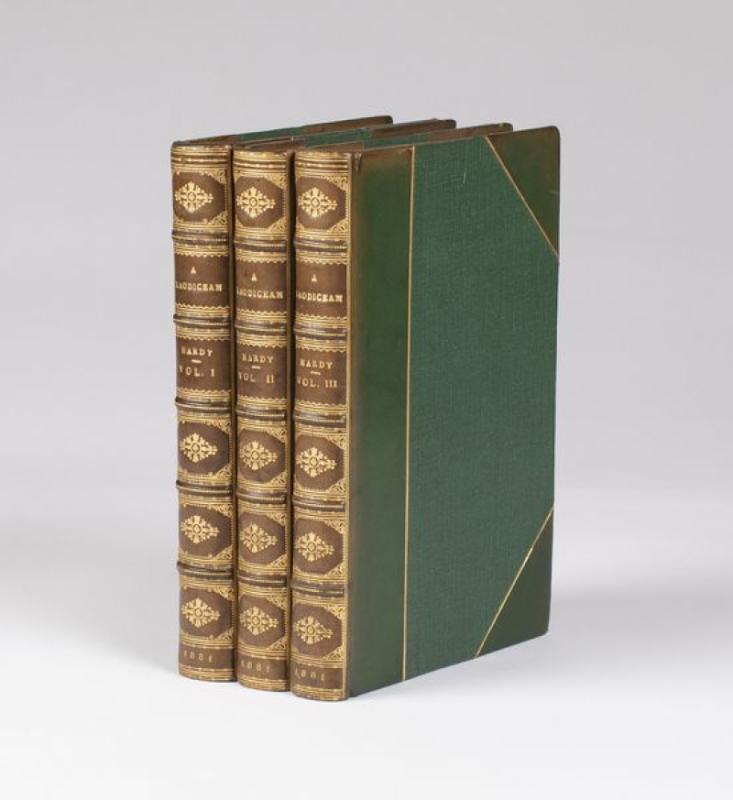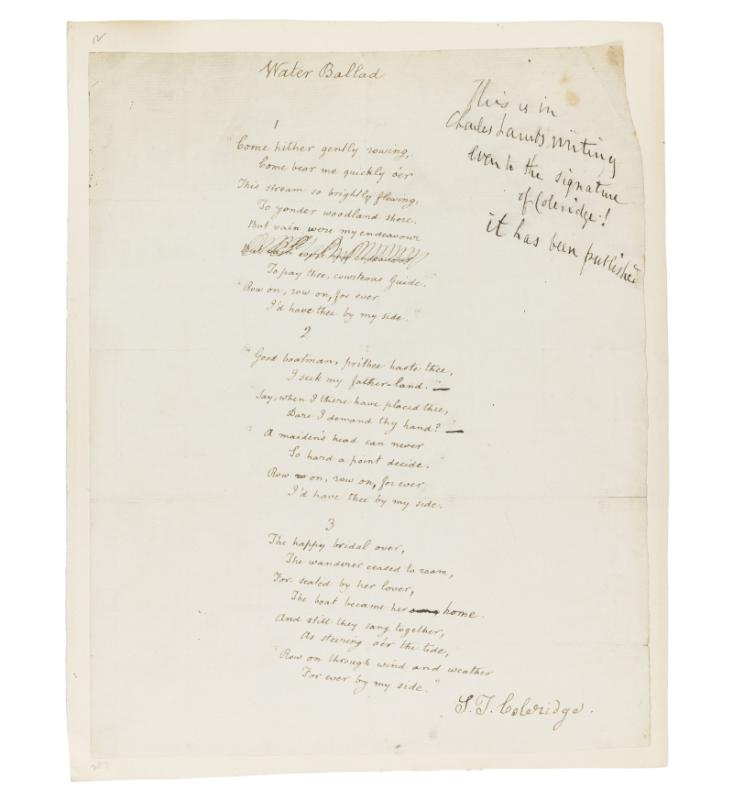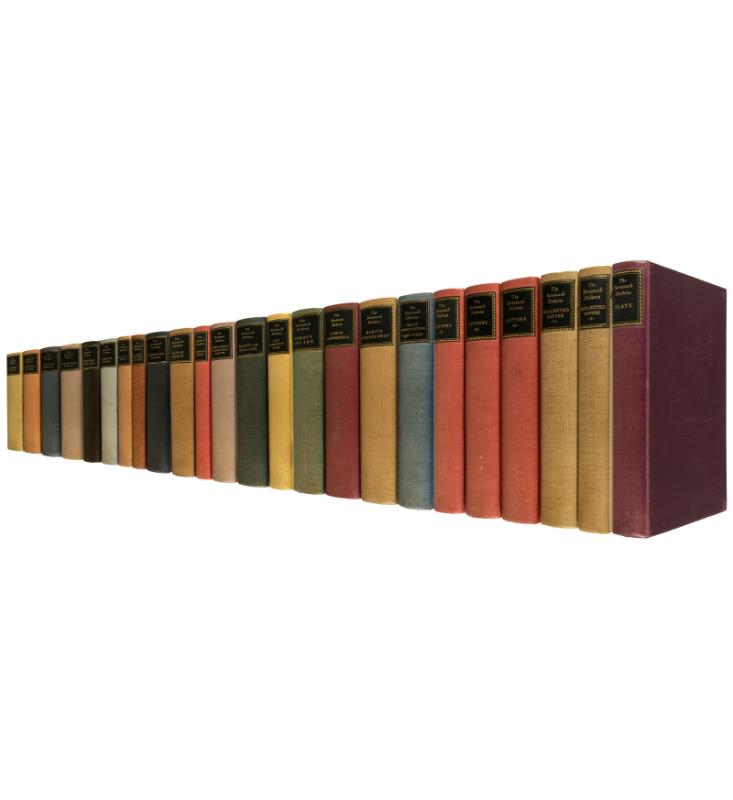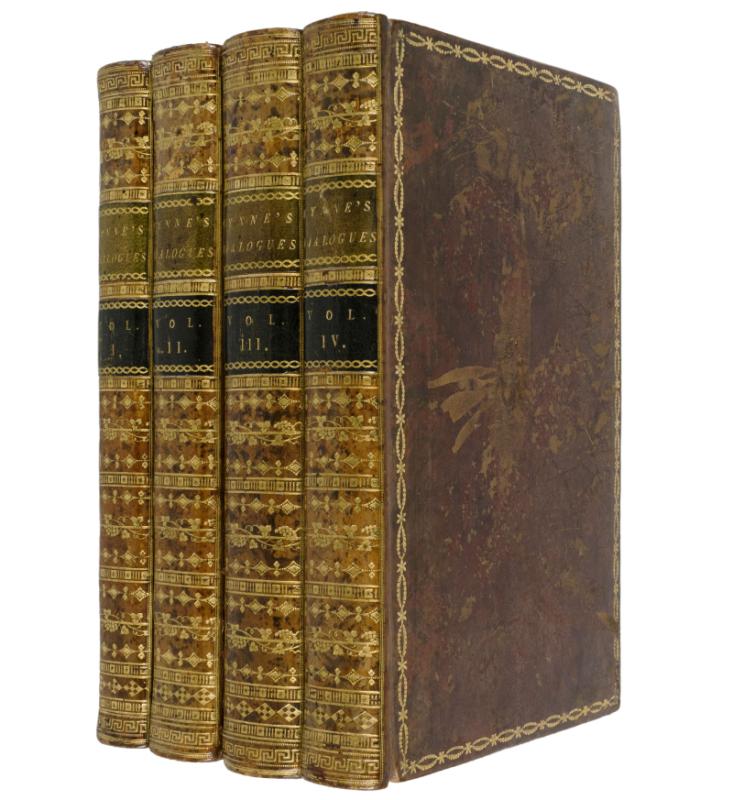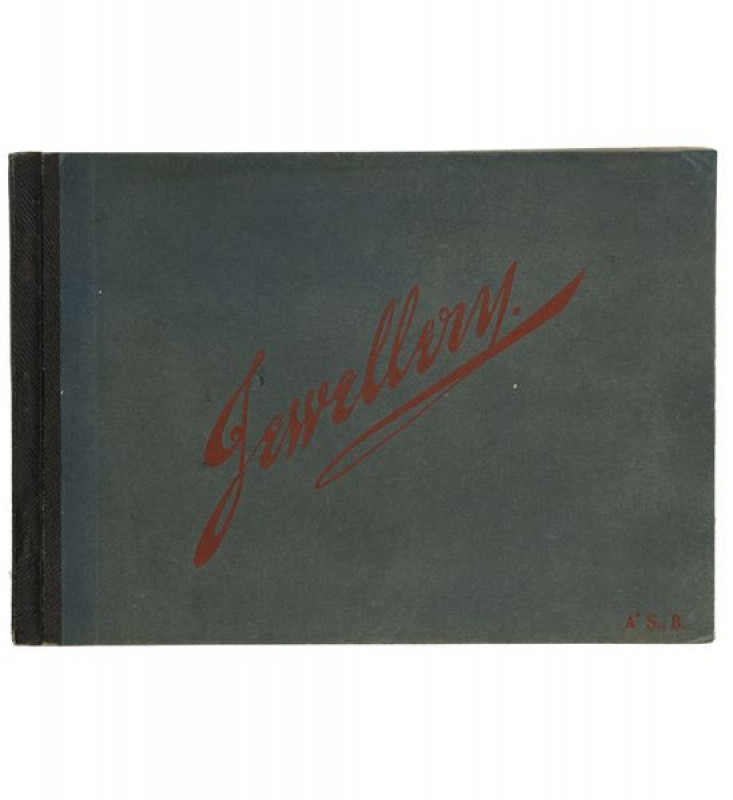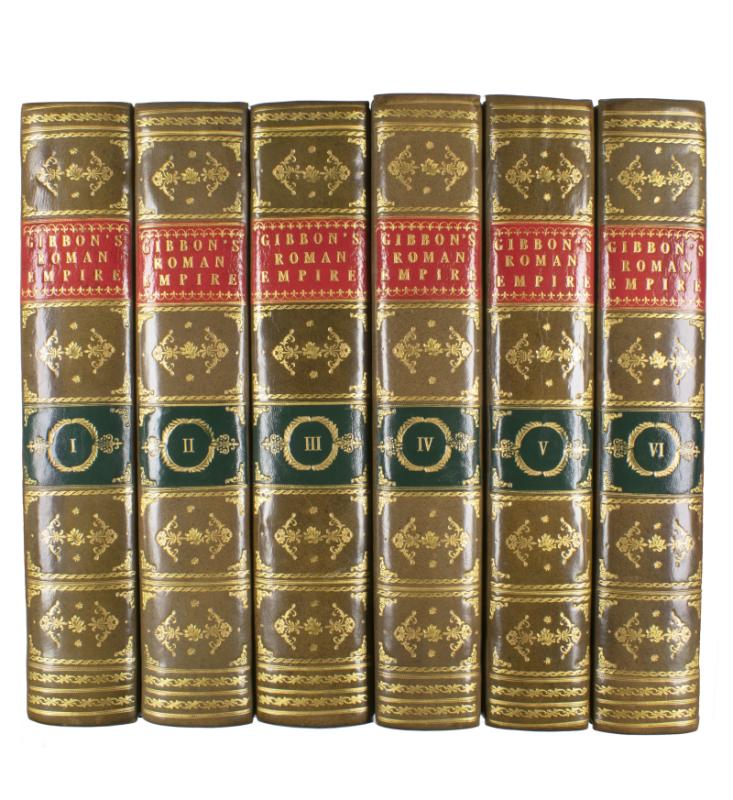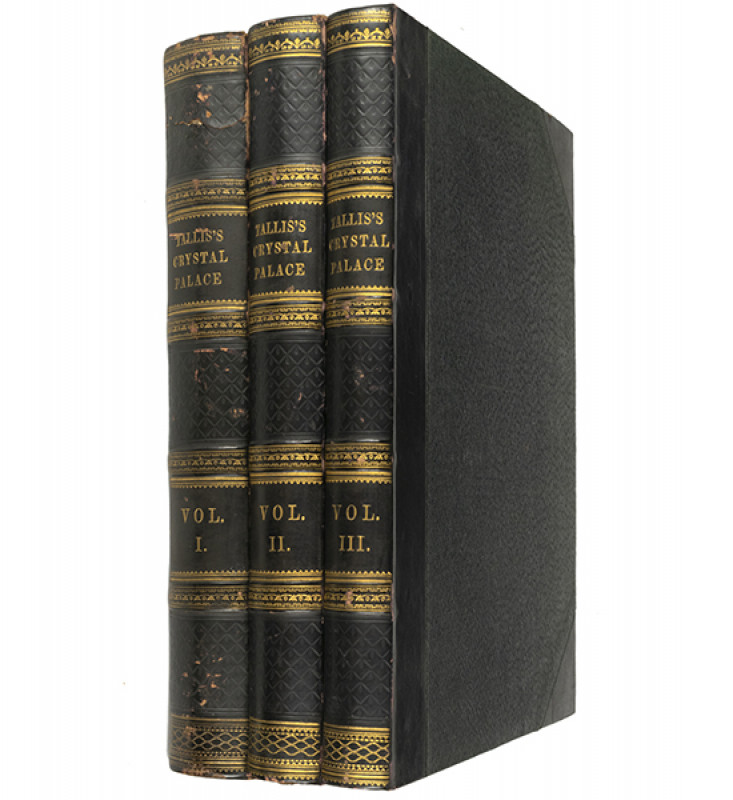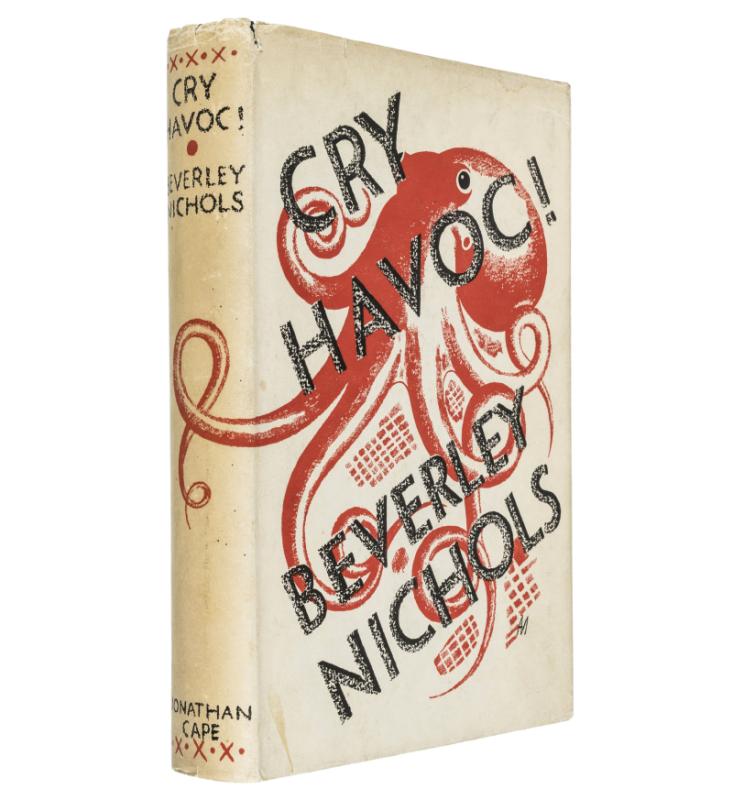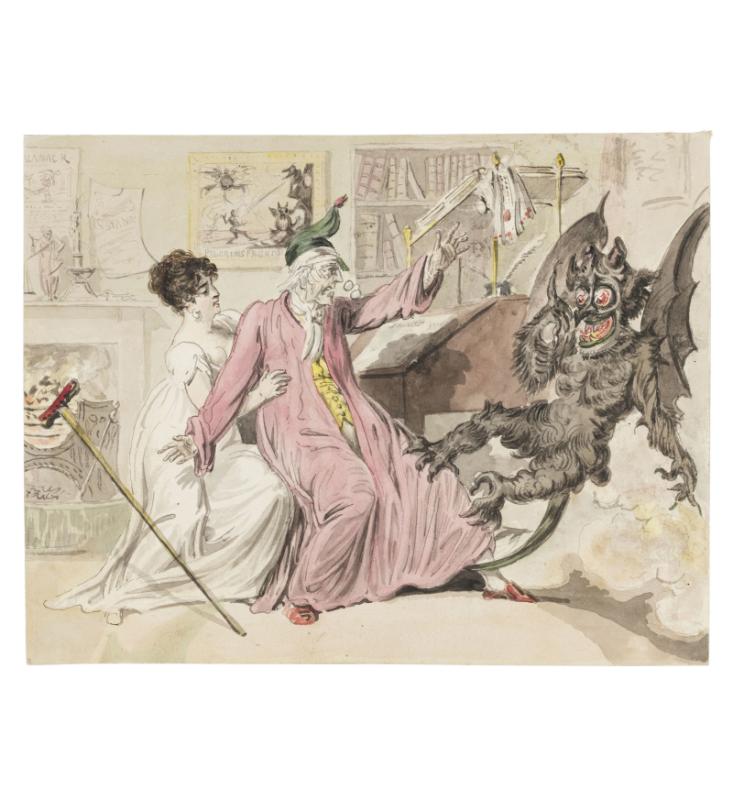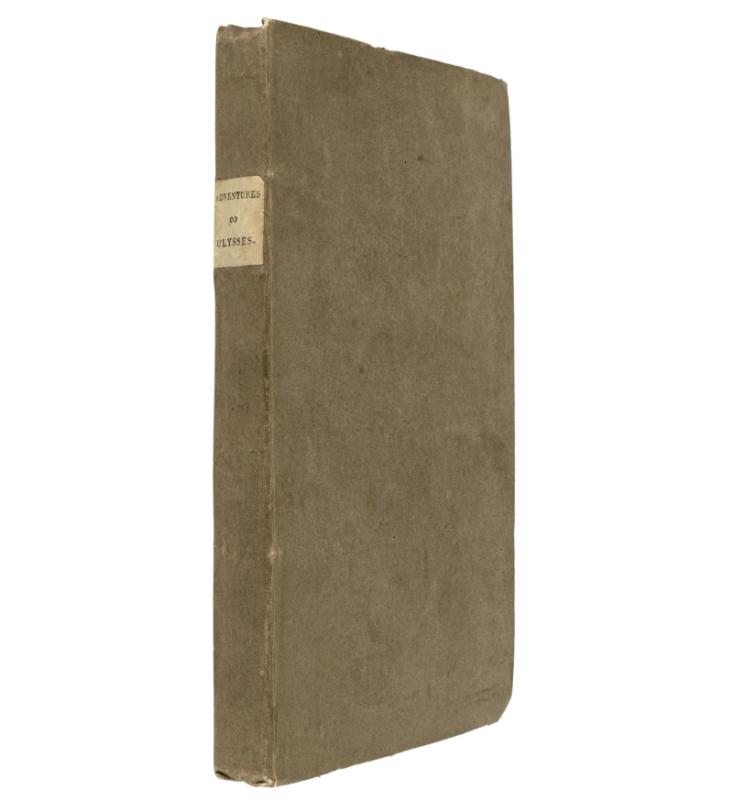A Coppy of the Prisoners Judgment Condemned Tody from Nugate on Mundaie the 13. of Decemb: 1641.
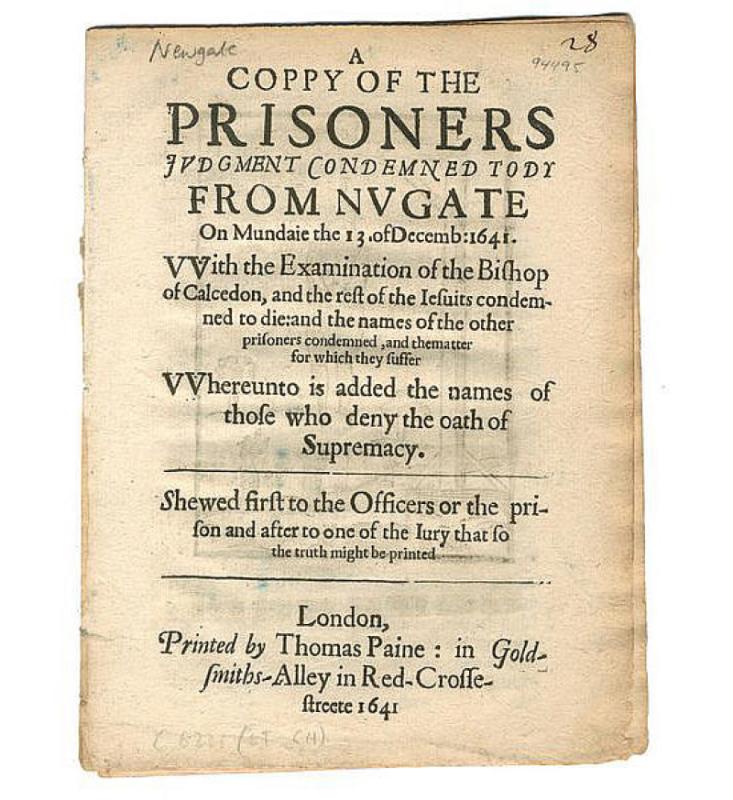
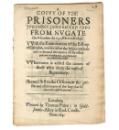
Book Description
With the Examination of the Bishop of Calcedon, and the rest of the Jesuits condemned to die: and the names of the other prisoners condemned, and the matter for which they suffer. Whereunto is added the names of those who deny the oath of Supremacy. Shewed first to the Officers or the prison and after to one of the Jury that so the truth might be printed.
With the Examination of the Bishop of Calcedon, and the rest of the Jesuits condemned to die: and the names of the other prisoners condemned, and the matter for which they suffer. Whereunto is added the names of those who deny the oath of Supremacy. Shewed first to the Officers or the prison and after to one of the Jury that so the truth might be printed.
Dealer Notes
ESTC R12550, BL & Guildhall only in UK; Folger, Huntington, UCLA, & Yale in US. The variant with line 15 of title reading ‘officers or the pri-’. A fascinating newsbook reporting on the 31 prisoners who were condemned to be executed at Newgate on December 13, 1641. Most significantly, it reports on seven priests - Abbot, alias Rivers, Edmond Fryer, Peter Wilford, Walter Coleman, John Hammond, Edmond Canon, and Wilmore, alias Wigmore or Turner - who were all charged with treason and sentenced to be ‘hang’d, drawn, and quartered’. Edmund Canon and Edmond Fryar were both elderly and infirm; the author describes Fryer as ‘very feeble, in so much that he could scarce go at all’, and wrote that Canon ‘desired that he might have a Chaire to sit down, in regard of his age’, which was granted, though both men were still handed the harshest possible punishment. John Hammond was allegedly in service to the Queen Henrietta Maria, and she, along with the French Ambassador, played an important role in gaining temporary reprieve for the men.
Following the sentencing on 8th December, the Queen instructed the French Ambassador to petition her husband Charles I for a reprieve for the priests. However, tensions between the King and Parliament were already high, especially in regards to the ruler’s suspected Catholic sympathies. Charles refused to grant any reprieves without the support of Parliament, so the matter was quietly taken to the House of Lords which then brought the matter to the House of Commons. It was ultimately decided that Edmond Canon and Peter Wilford would be spared and the rest would be executed as planned, but the decision was not confirmed until the intended execution day, resulting in a delay.
When the news broke that the priests’ executions were delayed or halted altogether, the crowd which had formed to watch the public executions, began to riot. The other prisoners who were to be hanged that day joined in the rioting, though they were eventually brought under control and their executions were carried out the following day. Among the non-religious criminals condemned to death were ‘Charles James, an hansome gentile young man ... convicted for Robery and Burglary’; the highway-men Thomas Randall, Edward Dawson, and Henry Smith; Mathew Chenering and Elizabeth Lee ‘Both of them, for stealing of a cloak a genleman, (as she said) was to lie with her the said Eliz. Lee, and the meane while Chenering conveyed a way the cloake’; Edward Hartford ‘a Cookes Boy, sometimes servant at the Castle in Pye-Corner, for Rape, and Buggery’; and Margaret Heatherfall ‘for picking of a pocket: but by reason shee is with child, she is reprieved’. It is interesting to note the number of criminals who were considered ‘a fine Scholar’, ‘a pretty Youth’, ‘a young proper man’, or otherwise, proving that a life of crime did not only appeal to the underclasses.
A wonderful document highlighting the wide range of capital crimes, and the individuals who were convicted of them, in Early Modern England.
Following the sentencing on 8th December, the Queen instructed the French Ambassador to petition her husband Charles I for a reprieve for the priests. However, tensions between the King and Parliament were already high, especially in regards to the ruler’s suspected Catholic sympathies. Charles refused to grant any reprieves without the support of Parliament, so the matter was quietly taken to the House of Lords which then brought the matter to the House of Commons. It was ultimately decided that Edmond Canon and Peter Wilford would be spared and the rest would be executed as planned, but the decision was not confirmed until the intended execution day, resulting in a delay.
When the news broke that the priests’ executions were delayed or halted altogether, the crowd which had formed to watch the public executions, began to riot. The other prisoners who were to be hanged that day joined in the rioting, though they were eventually brought under control and their executions were carried out the following day. Among the non-religious criminals condemned to death were ‘Charles James, an hansome gentile young man ... convicted for Robery and Burglary’; the highway-men Thomas Randall, Edward Dawson, and Henry Smith; Mathew Chenering and Elizabeth Lee ‘Both of them, for stealing of a cloak a genleman, (as she said) was to lie with her the said Eliz. Lee, and the meane while Chenering conveyed a way the cloake’; Edward Hartford ‘a Cookes Boy, sometimes servant at the Castle in Pye-Corner, for Rape, and Buggery’; and Margaret Heatherfall ‘for picking of a pocket: but by reason shee is with child, she is reprieved’. It is interesting to note the number of criminals who were considered ‘a fine Scholar’, ‘a pretty Youth’, ‘a young proper man’, or otherwise, proving that a life of crime did not only appeal to the underclasses.
A wonderful document highlighting the wide range of capital crimes, and the individuals who were convicted of them, in Early Modern England.
Author
NEWGATE PRISON.
Date
1641
Publisher
Printed by Thomas Paine: In Gold-smiths-Alley in Red-Crosse-street.
Friends of the PBFA
For £10 get free entry to our fairs, updates from the PBFA and more.
Please email info@pbfa.org for more information
